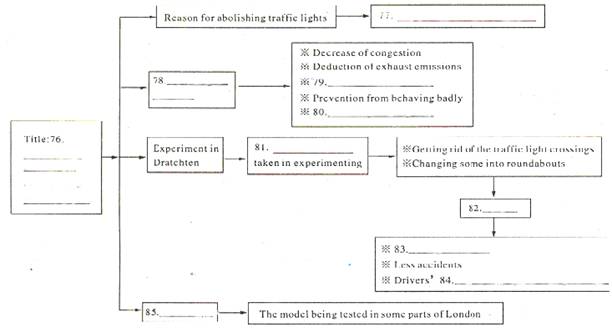题目内容
Owen wouldn't eat anything ________ he cooked it himself.
A.until
B.since
C.unless
D.while

DIY sailor Owen Warboys has finally launched his homemade boat — after spending nearly 30 years building it in his mum’s garden.
Owen, 66, a retired engineer from Hordle, New Milton, Hants, first started work on the 40ft—long boat in 1982 because he could not afford to buy his own. He told mum Edith that it would only take five years but after suffering “a few problems” it lasted nearly three decades.
When he finally finished, he was left with the head-scratching task of getting the 18-tonne boat out of the back garden. After some time he found a way. A huge crane (起重机) was brought in to carefully raise it 40ft in the air over his mother’s house and onto a lorry. It was then driven to the seaside and, to Owen’s delight, it floated and showed no signs of leaking when lowered into the water.
Now, 28 years after he first started, Owen is at last preparing to set sail in his beloved boat, Wight Dolphin, with his long-suffering wife Anne. Owen said, “I am so relieved that it’s finished. There were times when I thought it would never end but I’m the sort of person who likes to finish something once I’ve started.”
At first he persuaded his mum to let him do it in her garden and started taking in sheets of steel and pieces of wood. “My mother was happy for me to build it at her house but only bacause I told her it would only take five years.”
【小题1】Why did Owen decide to make his own boat by himself?
| A.He wanted to kill time after his retirement |
| B.He wished to set a new world record |
| C.He didn’t have enough money to buy a boat |
| D.He had a hobby of making things by hand |
| A.It leaked when lowered into the water |
| B.It couldn’t be sent onto a truck |
| C.He couldn’t afford to hire a crane. |
| D.He didn’t know how to move it out. |
| A.It was built by Owen and his supportive wife |
| B.It was in good condition after being put in the sea |
| C.Owen’s mother was relieved to see it was finished |
| D.Owen and his wife will sail around the world in it |
| A.the boat will enter a race competition |
| B.Owen retired early in order to make his boat |
| C.Owen’s wife gave the boat the name of Wight Dolphin |
| D.It took 23 more years to finish the boat than expected |
DIY sailor Owen Warboys has finally launched his homemade boat — after spending nearly 30 years building it in his mum’s garden.
Owen, 66, a retired engineer from Hordle, New Milton, Hants, first started work on the 40ft—long boat in 1982 because he could not afford to buy his own. He told mum Edith that it would only take five years but after suffering “a few problems” it lasted nearly three decades.
When he finally finished, he was left with the head-scratching task of getting the 18-tonne boat out of the back garden. After some time he found a way. A huge crane (起重机) was brought in to carefully raise it 40ft in the air over his mother’s house and onto a lorry. It was then driven to the seaside and, to Owen’s delight, it floated and showed no signs of leaking when lowered into the water.
Now, 28 years after he first started, Owen is at last preparing to set sail in his beloved boat, Wight Dolphin, with his long-suffering wife Anne. Owen said, “I am so relieved that it’s finished. There were times when I thought it would never end but I’m the sort of person who likes to finish something once I’ve started.”
At first he persuaded his mum to let him do it in her garden and started taking in sheets of steel and pieces of wood. “My mother was happy for me to build it at her house but only bacause I told her it would only take five years.”
1.Why did Owen decide to make his own boat by himself?
|
A.He wanted to kill time after his retirement |
|
B.He wished to set a new world record |
|
C.He didn’t have enough money to buy a boat |
|
D.He had a hobby of making things by hand |
2.What problem did Owen face when he finished his boat?
|
A.It leaked when lowered into the water |
|
B.It couldn’t be sent onto a truck |
|
C.He couldn’t afford to hire a crane. |
|
D.He didn’t know how to move it out. |
3.Which of the following is TRUE about the boat ?
|
A.It was built by Owen and his supportive wife |
|
B.It was in good condition after being put in the sea |
|
C.Owen’s mother was relieved to see it was finished |
|
D.Owen and his wife will sail around the world in it |
4.We can infer from the passage that _____.
|
A.the boat will enter a race competition |
|
B.Owen retired early in order to make his boat |
|
C.Owen’s wife gave the boat the name of Wight Dolphin |
|
D.It took 23 more years to finish the boat than expected |
